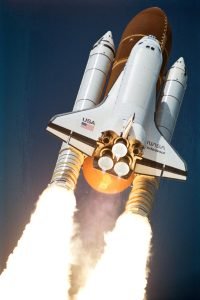The idea of exploring space has always fascinated humanity. From ancient times, people have looked up at the stars and wondered what lay beyond our world. With the advent of technology, we have been able to explore space in ways that were once unimaginable. Space exploration has become a major area of research, with countries around the world investing heavily in this field. In this article, we will explore the different aspects of space exploration, from its history to its future.
History of Space Exploration
The history of space exploration dates back to ancient times when people used the stars to navigate. However, the first significant step in space exploration was taken in 1957 when the Soviet Union launched Sputnik, the world’s first artificial satellite. This event marked the beginning of the Space Age and started a race between the United States and the Soviet Union to explore space.
The United States made significant progress in space exploration with the Apollo program. In 1969, Neil Armstrong and Buzz Aldrin became the first humans to walk on the moon. This achievement was a significant milestone in space exploration and showed that humans could travel beyond Earth.

Current State of Space Exploration
Space exploration has come a long way since the first satellite launch. Today, countries around the world are investing heavily in space exploration, and private companies like SpaceX are leading the way. SpaceX has made significant progress in reusable rockets, making space travel more affordable and accessible.
NASA’s Artemis program aims to return humans to the moon by 2024 and establish a permanent presence on the lunar surface by 2028. The International Space Station (ISS) has been in operation since 1998 and is an important platform for scientific research in space.

Advances in Space Technology
Advances in space technology have made it possible for humans to explore space in ways that were once impossible. One of the most significant advances in the development of reusable rockets, which have made space travel more affordable and accessible.
Robotic exploration has also advanced significantly in recent years. NASA’s Mars Rover has been exploring the Red Planet since 2012, and the agency plans to send humans to Mars in the coming decades.

The Future of Space Exploration
The future of space exploration is bright, with many exciting developments on the horizon. Private companies like SpaceX are planning to send tourists to space, and NASA is planning to establish a permanent presence on the moon.
One of the most exciting prospects for space exploration is the possibility of finding life beyond Earth. Scientists have discovered thousands of exoplanets, and some of them may be able to support life. The James Webb Space Telescope, scheduled to launch in 2021, will be able to detect signs of life on distant planets.

Challenges Facing Space Exploration
Despite the many advances in space technology, space exploration still faces many challenges. One of the biggest challenges is the cost of space travel. It is still very expensive to send humans into space, and this limits the number of missions that can be undertaken.
Another challenge is the risk to human life. Space travel is still a risky endeavor, and accidents can have devastating consequences. NASA’s Challenger and Columbia disasters serve as reminders of the risks involved in space exploration.
Conclusion
Space exploration has come a long way since the first satellite launch, and the future of space exploration looks bright. Private companies like SpaceX and Blue Origin are driving innovation, and NASA’s Artemis program aims to return humans to the moon in the coming years.
Despite the challenges facing space exploration, the benefits of exploring space are undeniable. Space exploration has the potential to provide valuable insights into our place in the universe, and the possibility of finding life beyond Earth is a tantalizing prospect.
As we look to the future, it is clear that space exploration will continue to be a major area of research and development.





